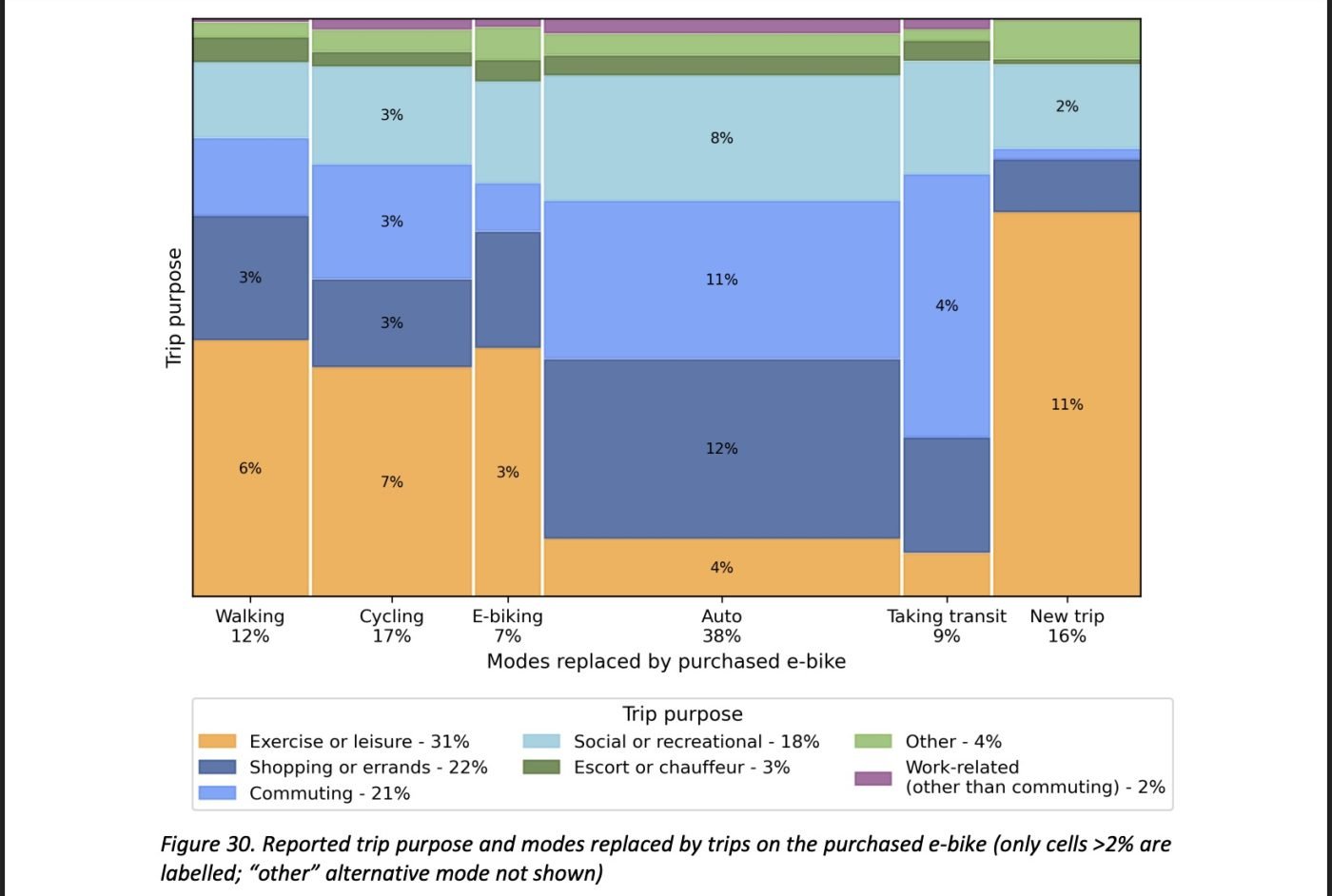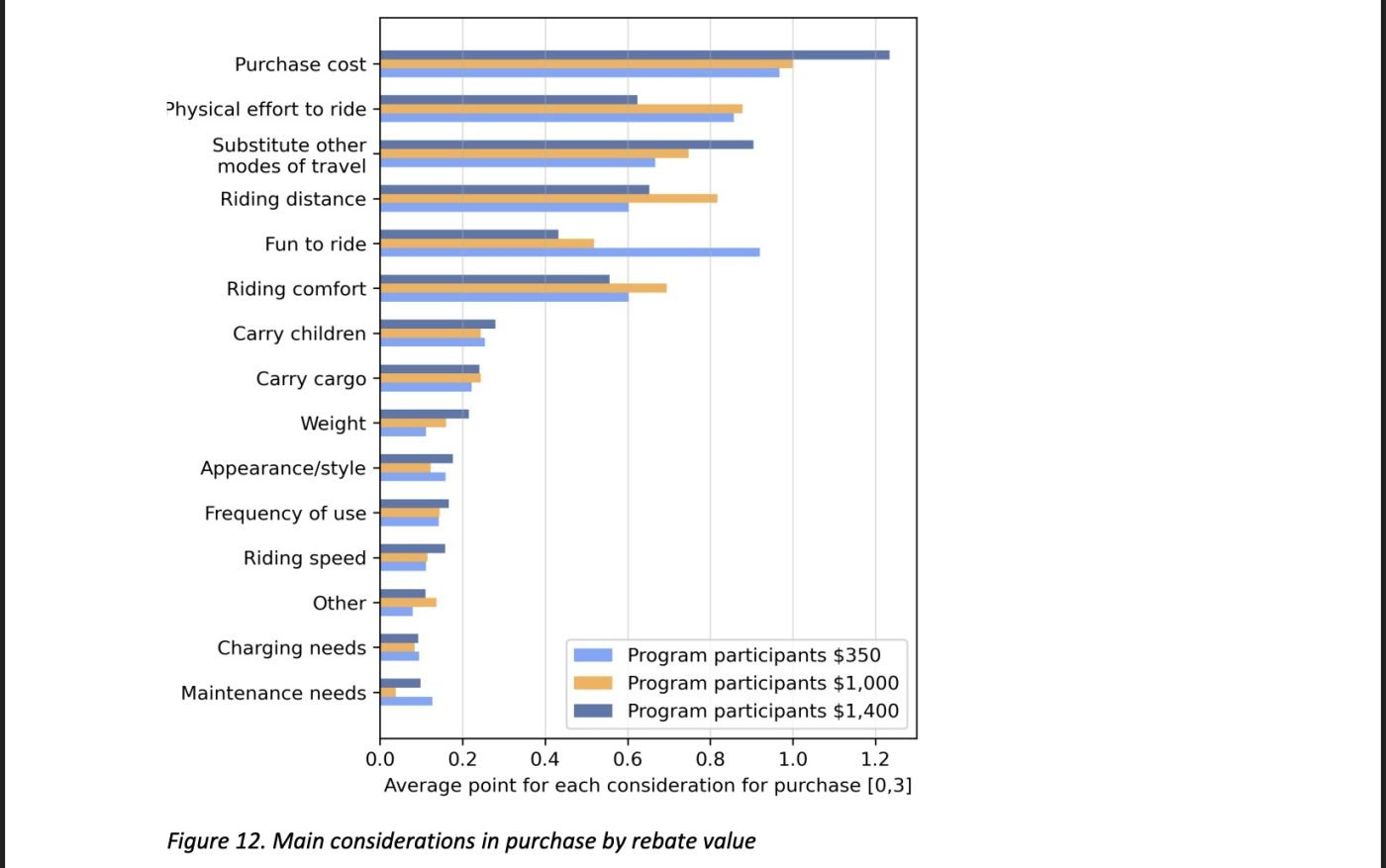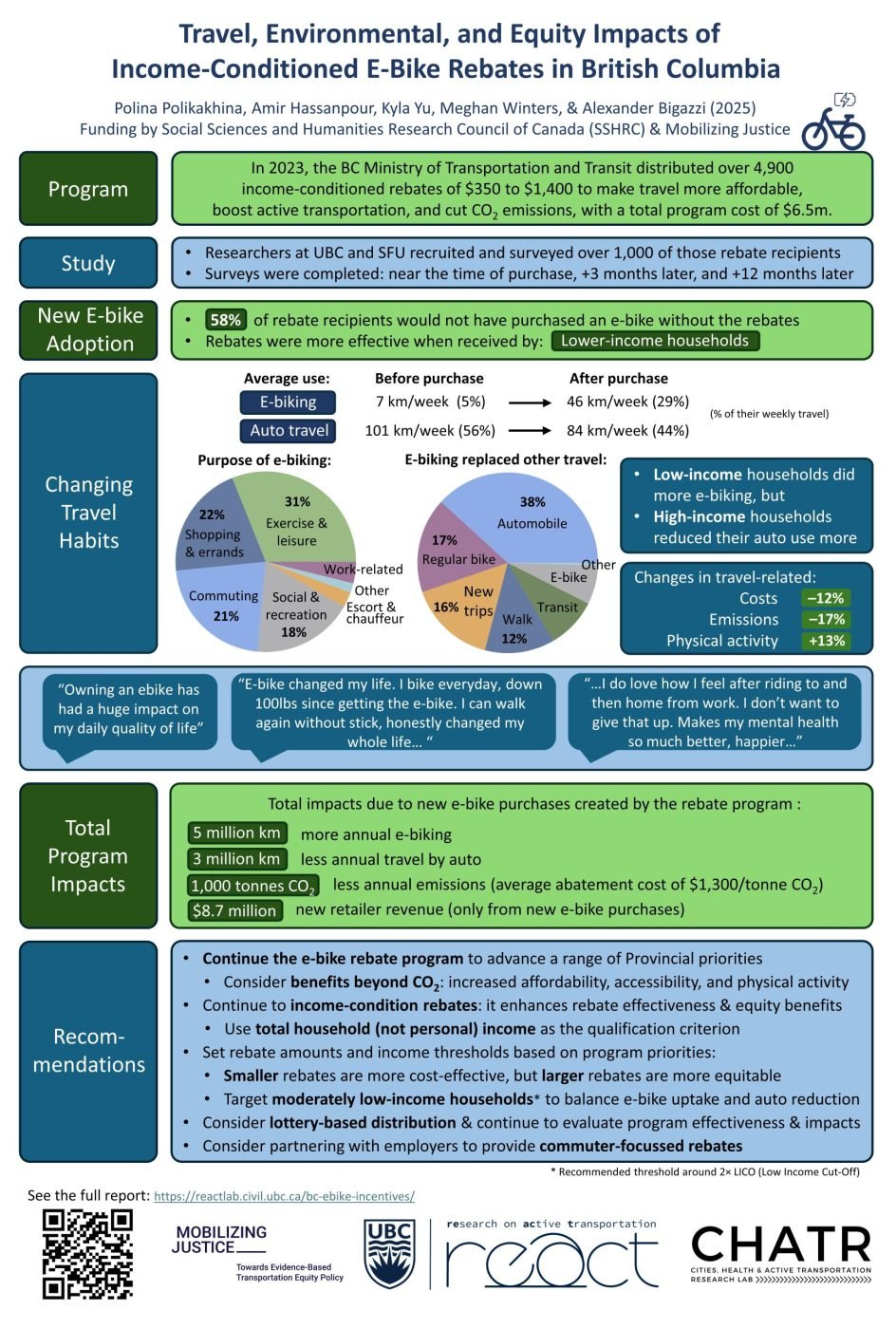New analysis on electrical bike rebates — launched the identical week the Metropolis of Portland introduced a comfortable launch of their program — is nice information for followers of utilizing authorities subsidies to make e-bikes cheaper.
A research from College of British Columbia discovered substantial environmental, financial, and high quality of life advantages in individuals who acquired rebates from the BC Electrical Bike Rebate Program launched in 2023. Past the serendipitous timing of this analysis, it has one other sturdy Portland connection: One of many research’s researchers, UBC Affiliate Professor Dr. Alex Bigazzi, is a graduate of Portland State College whose work on biking and air high quality made a number of headlines right here on BikePortland.
In Journey, Environmental, and Fairness Impacts of Revenue-Conditioned E-Bike Rebates in British Columbia by Polina Polikakhina, Amir Hassanpour, Kyla Yu, Meghan Winters, and Bigazzi (2025, with funding by Social Sciences and Humanities Analysis Council of Canada (SSHRC) & Mobilizing Justice) surveyed over 1,000 BC program contributors for over one yr. By almost each metric, the flexibility so as to add an e-bike to their lives had vital optimistic advantages to their private well-being and the world round them. The research discovered that:
Emissions from journey dropped 17 per cent per yr total, equal to 1,000 tonnes of carbon dioxide
Journey prices fell 12 per cent
Put up-purchase vehicle use fell by 20% whereas e-bike use elevated by an element of 16
Bodily exercise throughout journey rose 13 per cent
Rebates lower e-bike buy prices by 43 per cent, with the best advantages going to lower-income households
$6.5 million in rebates generated $8.7 million in new retailer income.
The BC program affords rebates of $350 to $1,400 relying on private revenue {qualifications}. The research tracked many statistics about contributors together with: buy selections, use of bought e-bikes, and short-term (three months) and long-term (12 months) journey habits modifications post-purchase.
Among the many findings is that folk who used the rebates bought bikes with a median value of $3,200 (paying a median of $1,900 after the rebate). “E-bike value was inversely associated to rebate worth, exhibiting that the rebates had been primarily used to lower value reasonably than to accumulate costlier e-bikes,” the research abstract reads.


Utilizing demographic knowledge, researchers discovered that reductions in vehicle use had been better for these with increased family revenue and people residing in suburban areas which might be comparatively dense however with poorer entry to locations by strolling, biking, or public transit. Will increase in e-bike use had been additionally better for these with decrease family revenue and people residing in hillier areas.
Together with demographic knowledge, the research supplies suggestions for how one can make them work even higher.

Given behaviors of rebate recipients, researchers say geographic prioritization is value contemplating, as a result of locations with issues like hillier terrain and restricted public transit choices could have better rebate impacts. This appears to be fodder for a particular rebate dispensation to of us who dwell within the southwest/west hills.
It has all the time bugged me that politicians appear to have no downside supporting e-car rebates, however balk at doing the identical for e-bikes. I do know it may well’t battle the ability of motonormativity, however this research discovered e-bike rebates are cost-competitive with automobile rebates for GHG mitigation. However wait, there’s extra: “[E-bike rebates] additionally generate a variety of different necessary advantages by way of vehicle mode substitution and elevated bodily exercise.” So yeah, e-bike rebates even have extra bang-for-our-buck than e-car rebates. The research also needs to function a reminder to by no means restrict framing e-bike rebate advantages as solely a local weather change preventing device. “Contemplating mobility and bodily exercise co-benefits shall be more and more necessary if declining vehicle emission charges diminish the effectiveness of e-bike rebates for GHG discount,” researchers write.
“E-bikes convey advantages to customers in value, mobility and bodily exercise,” mentioned research co-investigator Dr. Meghan Winters of Simon Fraser College. “However the impacts of this rebate program are additionally extra broad, with societal advantages of diminished emissions, alternative of automobile journeys, and generated income.”
And to prime all of it off, rebate customers cited “enjoyable and delight” as one of many prime causes they had been wanting to hop on an e-bike.
— View an article on the research by UBC which has hyperlinks to the research abstract and full report.
































